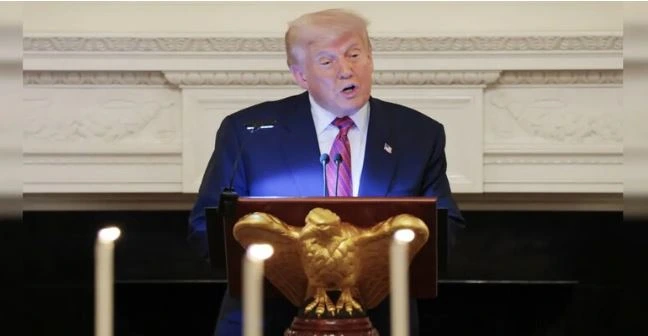Latest world news
Nelson Mandela International Day 2023: Significance, quotes and things you must know about the world leader
The theme aims to call for action, urging everyone to take concrete steps to address climate change and food insecurity and also to stand in solidarity with those who are most affected by these press issues.

Latest world news
PM Modi to begin two-day Israel visit, defence and trade in focus
PM Narendra Modi begins a two-day Israel visit aimed at strengthening defence cooperation, trade ties and upgrading bilateral relations to a special strategic partnership.
Latest world news
Trump says tariffs will replace income tax, criticises Supreme Court setback in key address
Donald Trump has said tariffs collected from foreign nations could eventually replace income tax in the US, while criticising a Supreme Court ruling against his earlier import duties.
Latest world news
Trump repeats claim of averting India-Pakistan nuclear war during Operation Sindoor
Donald Trump has claimed that Pakistan’s Prime Minister told him 35 million people could have died during Operation Sindoor if the US had not intervened. India denies any third-party mediation.
-

 India News23 hours ago
India News23 hours agoRSS chief backs nationwide rollout of Uniform Civil Code, cites Uttarakhand model
-

 India News14 hours ago
India News14 hours agoAs stealth reshapes air combat, India weighs induction of Sukhoi Su-57 jets
-

 Cricket news14 hours ago
Cricket news14 hours agoRinku Singh returns home from T20 World Cup camp due to family emergency
-

 India News13 hours ago
India News13 hours agoTamil Nadu potboiler: Now, Sasikala to launch new party ahead of election
-

 Latest world news32 mins ago
Latest world news32 mins agoTrump says tariffs will replace income tax, criticises Supreme Court setback in key address
-

 Latest world news41 mins ago
Latest world news41 mins agoTrump repeats claim of averting India-Pakistan nuclear war during Operation Sindoor
-

 India News22 mins ago
India News22 mins agoShashi Tharoor questions Centre over Kerala name change to Keralam
-

 Latest world news16 mins ago
Latest world news16 mins agoPM Modi to begin two-day Israel visit, defence and trade in focus





